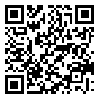BibTeX | RIS | EndNote | Medlars | ProCite | Reference Manager | RefWorks
Send citation to:
URL: http://rjms.iums.ac.ir/article-1-3429-en.html

 , Zohreh Rahaee2
, Zohreh Rahaee2 
 , Seyed Saeed Mazloomy Mahmoodabad3
, Seyed Saeed Mazloomy Mahmoodabad3 
 , Valee Bahrevar3
, Valee Bahrevar3 
 , Zahra KHajeh3
, Zahra KHajeh3 
 , Sarisa Najafi4
, Sarisa Najafi4 
 , Azar Tol *5
, Azar Tol *5 

2- PhD student in Health Education, School of Medicine
3- Yazd Shahid Sadoghi University of Medical Sciences, Yazd, Iran
4- Islamic Azad University, Sanandaj Branch, Sanandaj, Iran.
5- Tehran University of Medical Sciences, Tehran, Iran
Background: Skin
cancer is the third prevalent cause of mortality and morbidity and the second
widespread cancer based on organ involvement in Yazd province. This study aimed
to assess the effects of educational intervention on promoting skin cancer
preventive behaviors of female students based on of some PRECEDE Model constructs.
Methods: Semi-
experimental interventional study with 75 sample size in each group performing
random sampling from Yazd universities was implemented. Validity and reliability
of researcher made scales were approved. Questionnaires filled by participants
and data were analyzed. Based on problem and weakness of preventive skin cancer
and its predisposing factors adoption analysis was distinguished and
educational intervention planned and performed. Educational strategy was
compromised face to face and group discussion. After three months follow up,
data using descriptive and inferential statistics were analyzed. Significance
level was set less than 0.05.
Results: Before
intervention, predisposing factors was in the moderate level (%56.6) [Knowledge
in moderate (%51.6), attitude relatively good (%66.1)] and preventive behavior
adoption was poor (%48). Knowledge with attitude and practice, also attitude
with practice had direct significant correlation. Knowledge and attitude as
predisposing factor accounted for 25.1% of the variation of skin cancer
preventive behavior changes with the attitude as the strongest predictor.



